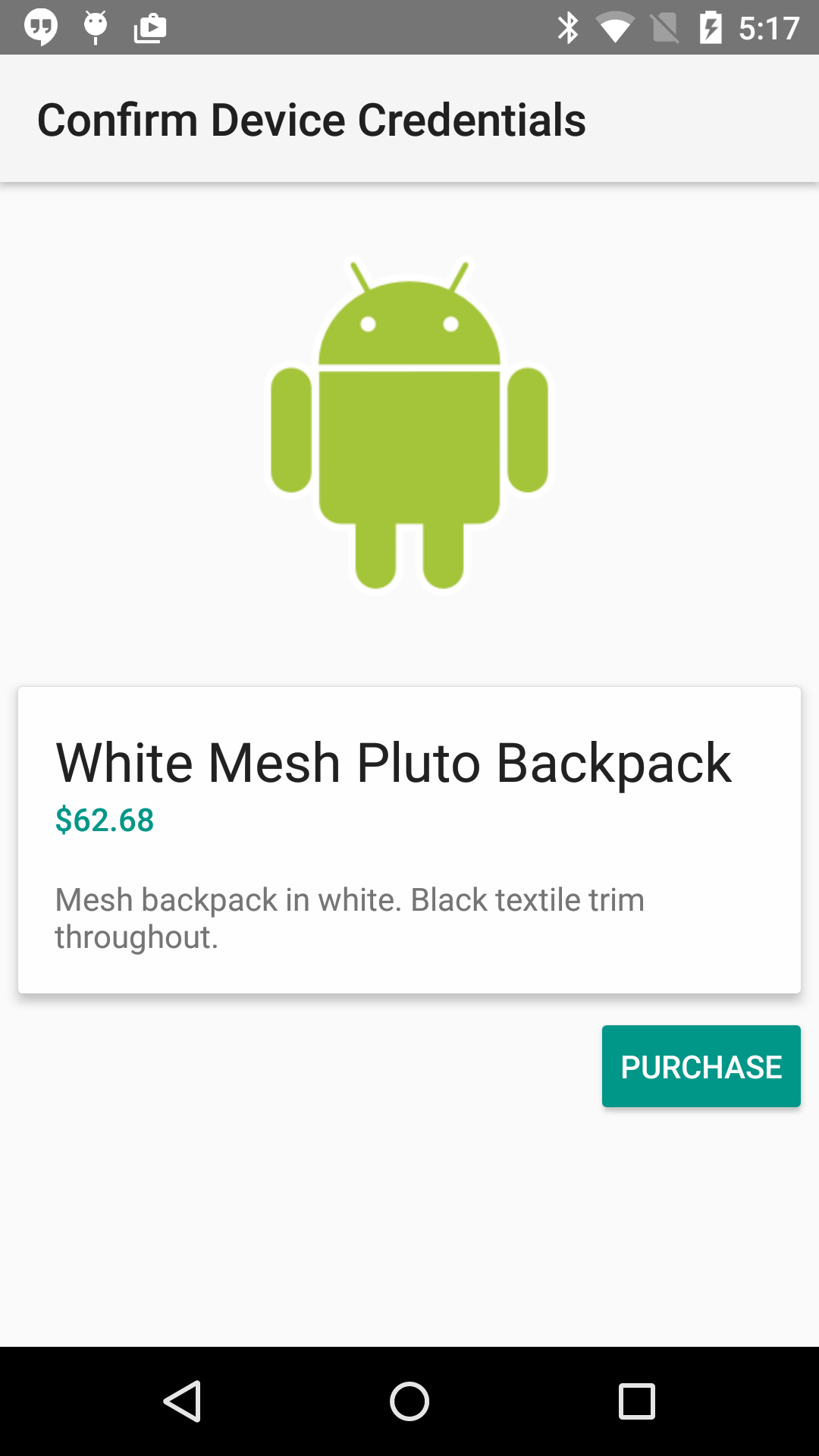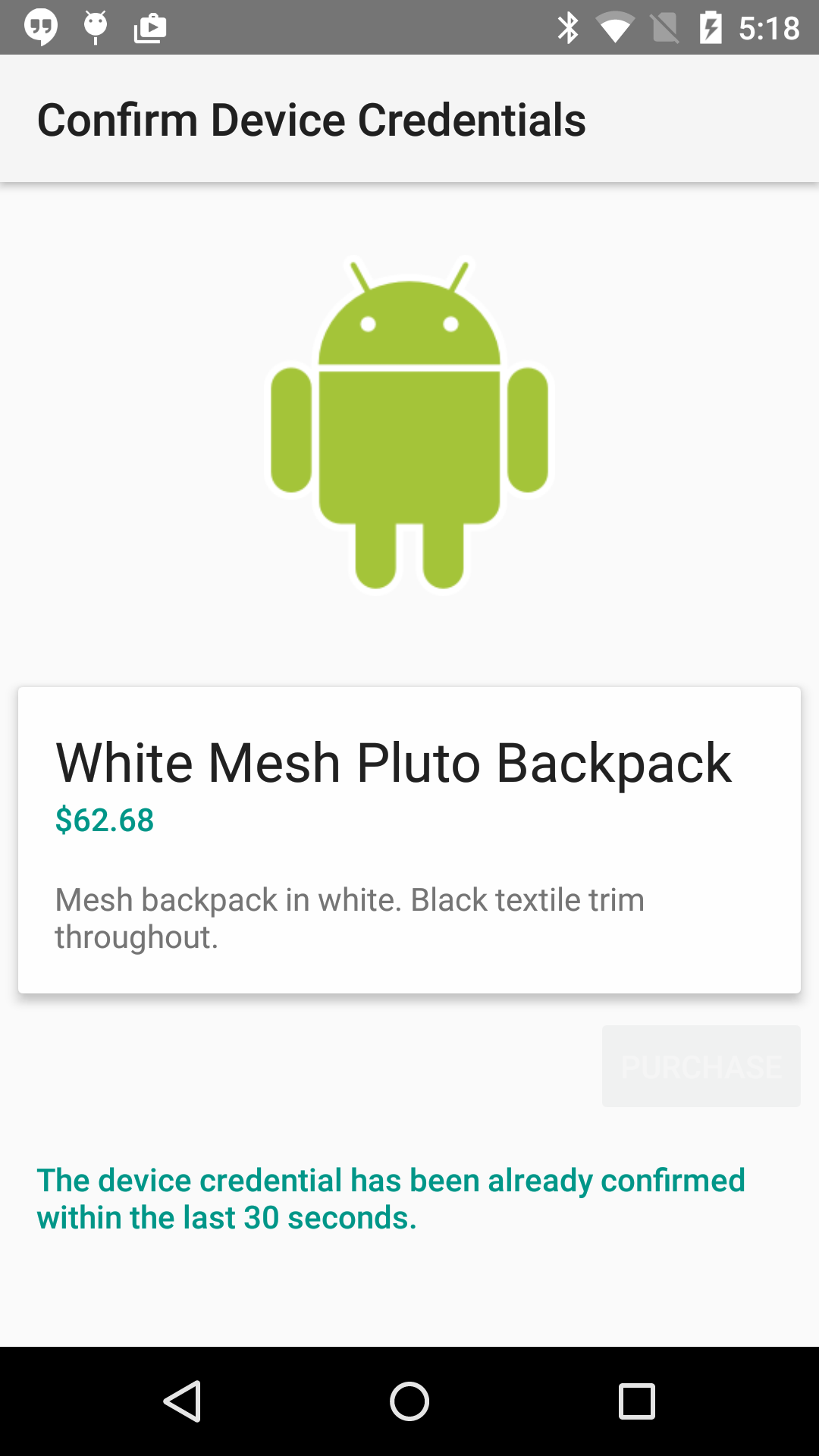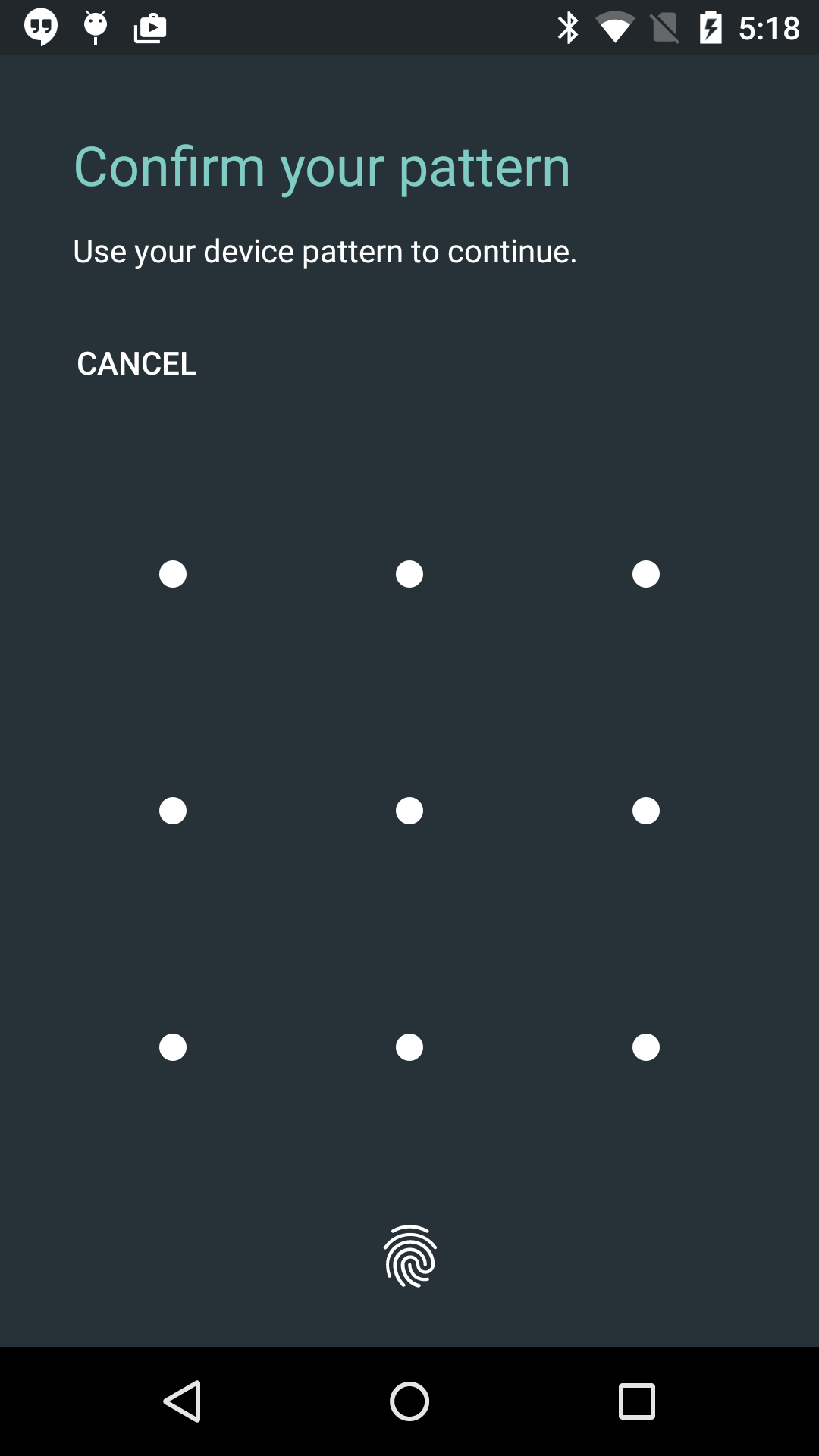Android Confirm Credential Sample
A sample that demonstrates how to use device credentials (PIN, Pattern, Password) in your app
Introduction
This sample demonstrates how you can use device credentials (PIN, Pattern, Password) in your app to authenticate the user before they are trying to complete some actions.
First you need to create a symmetric key in the Android Key Store using KeyGenerator which can be only be used after the user has authenticated after the user is authenticated with their device credentials and pass KeyGenParameterSpec.
By setting an integer value to the KeyGenParameterSpec.Builder.setUserAuthenticationValidityDurationSeconds, you can consider the user as authenticated if the user has been authenticated with the device credentials within the last x seconds.
Then by calling KeyguardManager.createConfirmDeviceCredentialIntent, you can show a screen to confirm device credentials to the user.
Pre-requisites
- Android SDK 26
- Android Build Tools v26.0.1
- Android Support Repository
Screenshots



Getting Started
This sample uses the Gradle build system. To build this project, use the "gradlew build" command or use "Import Project" in Android Studio.
Support
- Google+ Community: https://plus.google.com/communities/105153134372062985968
- Stack Overflow: http://stackoverflow.com/questions/tagged/android
If you've found an error in this sample, please file an issue: https://github.com/googlesamples/android-Confirm Credential
Patches are encouraged, and may be submitted by forking this project and submitting a pull request through GitHub. Please see CONTRIBUTING.md for more details.
License
Copyright 2017 The Android Open Source Project, Inc.
Licensed to the Apache Software Foundation (ASF) under one or more contributor license agreements. See the NOTICE file distributed with this work for additional information regarding copyright ownership. The ASF licenses this file to you under the Apache License, Version 2.0 (the "License"); you may not use this file except in compliance with the License. You may obtain a copy of the License at
http://www.apache.org/licenses/LICENSE-2.0
Unless required by applicable law or agreed to in writing, software distributed under the License is distributed on an "AS IS" BASIS, WITHOUT WARRANTIES OR CONDITIONS OF ANY KIND, either express or implied. See the License for the specific language governing permissions and limitations under the License.
compile "com.android.support:support-v4:26.1.0"
compile "com.android.support:support-v13:26.1.0"
compile "com.android.support:cardview-v7:26.1.0"
compile "com.android.support:appcompat-v7:26.1.0"
compileSdkVersion 26
minSdkVersion 23
targetSdkVersion 26
package com.example.android.confirmcredential
package com.example.android.confirmcredential
uses-permission
- android.permission.VIBRATE
MainActivity
Main entry point for the sample, showing a backpack and "Purchase" button.
Alias for our key in the Android Key Store.
If the user has unlocked the device Within the last this number of seconds, it can be considered as an authenticator.
Tries to encrypt some data with the generated key in {@link #createKey} which only works if the user has just authenticated via device credentials.
Creates a symmetric key in the Android Key Store which can only be used after the user has authenticated with device credentials within the last X seconds.
MainActivity
Main entry point for the sample, showing a backpack and "Purchase" button.
Alias for our key in the Android Key Store.
If the user has unlocked the device Within the last this number of seconds, it can be considered as an authenticator.
Tries to encrypt some data with the generated key in {@link #createKey} which only works if the user has just authenticated via device credentials.
Creates a symmetric key in the Android Key Store which can only be used after the user has authenticated with device credentials within the last X seconds.


